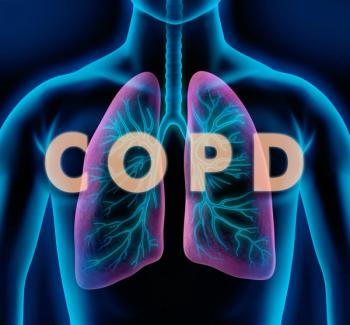
Using Mendelian randomization analysis, researchers found evidence that 2 small groups of immunophenotypes are linked to either greater or lesser odds of developing pulmonary arterial hypertension (PAH).

Using Mendelian randomization analysis, researchers found evidence that 2 small groups of immunophenotypes are linked to either greater or lesser odds of developing pulmonary arterial hypertension (PAH).

Despite advancements in umbilical cord blood transplants, social determinants of health, such as poverty and public insurance, continue to impact outcomes, underscoring the need for equitable access to lifesaving treatments.

Two posters presented at the CHEST 2024 annual meeting highlighted significant disparities in acute coronary syndrome care and outcomes among different racial, ethnic, and gender groups, underscoring the urgent need for targeted interventions to address these inequities.

Experts discuss pricing, utilization, and health plan strategies to drive biosimilar uptake.

Many talks at the Association of Cancer Care Centers (ACCC) 41st National Oncology Conference advocated for the adoption of culturally relevant care, the leveraging of community partnerships, and community engagement to build better trust with patients and improve outcomes.

Two posters compared health care resource utilization (HCRU) and financial burdens of people living with HIV with a non-HIV population and people with HIV who are heavily treated with those have experienced less treatment.

Patients with low-count chronic lymphocytic leukemia phenotype monoclonal B-cell lymphocytosis had a 1.86-fold greater risk of melanoma.

Optune Lua creates tumor-treating fields to disrupt cancer cell division, and it is used in conjunction with PD-1/PD-L1 inhibitors or docetaxel to treat metastatic non–small cell lung cancer (NSCLC) that has not responded to platinum-based treatment.

The study showed that having pre-existing leukopenia and more favorable performance status was associated with a higher risk of rash.

Investigators say adding RNA interference (RNAi) therapy to current treatment modalities may improve outcomes in patients with acute myeloid leukemia (AML) with internal tandem duplication in the fms-like tyrosine kinase 3 (FLT3) gene.

Experts reevaluate coverage policies and the financial impact of antiobesity medications based on updated clinical data and key utilization trends.

At CHEST 2024, Cesar Davila-Chapa, MD, University of Nebraska Medical Center, brings awareness to the racial disparities demonstrated in his investigation of idiopathic pulmonary fibrosis (IPF) hospitalizations and outcomes.

The progress made to mitigate the opioid use crisis still pales in comparison with the crucial effort needed to address it, especially in regard to accessing medication.

The phase 2 PICCOLO trial demonstrated that mirvetuximab soravtansine (Elahere; AbbVie) is effective and tolerable in heavily pre-treated patients with folate receptor alpha-positive (FRα+), platinum-sensitive ovarian cancer.

Adalimumab biosimilar market shares have steadily increased, but challenges remain due to pricing strategies and limited government support, according to the Samsung Bioepis report.

Two posters at the CHEST 2024 annual meeting revealed that 18% of eligible patients hospitalized with acute exacerbations of chronic obstructive pulmonary disease (AECOPD) participated in post-discharge pulmonary rehabilitation (PR), with ineligibility significantly limiting uptake.

Women are still being excluded from cardiovascular research trials, and it has a lasting impact on heart disease treatment for women today.

Full-time caregivers to loved one's with Alzheimer disease or other dementias could earn over $100,000 annually if they were compensated for their time and responsibilities.

Early data from the CDC demonstrates a slight decrease in drug fatalities in children compared with 2022.

Financial toxicity and patient and staff wellness were well explored at the Association of Cancer Care Centers (ACCC) 41st National Oncology Conference, serving as the focal point of multiple posters and presentations.

Patients living with HIV in Barcelona, Spain have seen a decrease in mortality of patients in critically ill condition admitted to the intensive care unit (ICU).

One of the key highlights was the discussion of Pulmonary Embolism Response Teams (PERT), addressing controversies in PE management and focusing on personalized, patient-centered care.

Two posters presented at CHEST 2024 revealed significant racial and ethnic disparities in the hospitalization and treatment of patients with idiopathic pulmonary fibrosis (IPF), with Black patients hospitalized at younger ages but less likely to receive antifibrotic medications than White patients.

Mortality outcomes were analyzed for the COVID-19 public health emergency period, from March 2020 through May 2023, to see if there were any apparent differences according to race or ethnicity.

Alopecia areata is linked to specific trace elements, serum metabolites, and inflammatory factors, according to a genetic analysis, suggesting potential new treatment and prevention strategies.

Individuals with self-reported moderate to severe psoriatic arthritis (PsA) face a higher disease burden, particularly among Black participants, highlighting the need for a better understanding of the interplay between PsA severity and racial and ethnic disparities.

Posters presented at the CHEST 2024 annual meeting demonstrated air pollution's role in lung impairment and disease, highlighting the urgent need for providers to address the escalating impacts of climate change on lung health.

Despite the incidence of retinoblastoma remaining consistent throughout Europe, different countries had differing rates of survival.

Lecanemab (Leqembi; Eisai/Biogen) received traditional approval from the FDA in July 2023, following an accelerated approval in January 2023, to treat adult patients who have Alzheimer disease.

During CHEST 2024, Maxine Dexter, MD, Kaiser Permanente, discussed her belief in the vital role of physicians in public health advocacy, drawing from her legislative work on issues as a former Oregon State Representative.

259 Prospect Plains Rd, Bldg H
Cranbury, NJ 08512
© 2025 MJH Life Sciences®
All rights reserved.
